Menu
close
Our block paving slabs are indispensably versatile for use on your patios, driveways, and pathways in Washington. Whether you want to upgrade or build your patio, our block paving helps you create a sturdy, long-lasting courtyard for years to come.
We have a wide range of block paving styles, giving you a chance to decide what works best for you. These block pavers come in various colours, meeting all your diverse tastes and preferences. We can also merge styles and patterns to match any unique requirements on your driveway.
Block paving is an excellent solution that you can use to establish, update, or add finishing touches to your patio. We help you create a contemporary patio with block paving choices at your disposal. Our team in Washington will even replace your traditional driveway with new block pavers should you need some renovations on your outdoor space.
You don't have to worry about purchasing anything as we are well stocked on anything you might need for your patio ranging from colour, size, and decorative stones. With block paving, you can enjoy a lifetime on your patio for generations.
Block paving will give your driveway in Washington a new look by doing away with the riven surface and traditional paving. In the UK, block paving is cost-effective over a range of colours, styles, and shapes. However, some factors affect the cost of block paving when hiring an expert:
Here are some factors to consider when determining the cost of block paving in England:
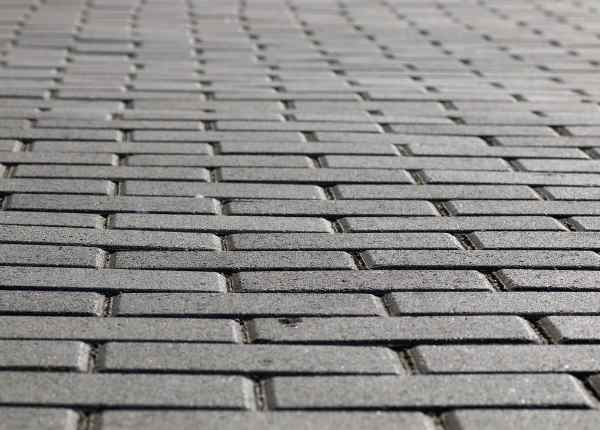
Building your driveway might seem challenging and tiresome on your own. However, with our help, we can make your dream home or yard come true. Below is an in-depth gradual guide on how to set up your block paving driveway:
Before we kick-off, it is advisable to have a blueprint of your path or garden. A well-designed pattern will determine how good the rest of the foundation will be. There are different types of block paving patterns including, herringbone, stretcher, and basketweave.
The design doesn't have to be too detailed. A simple sketch will help us formulate the driveway dimensions when laying the block pavers. It will also come in handy when deciding on the materials for laying the pavers.
What Do You Need for Laying Block Pavers?
Tools and materials are the two primary things to consider when laying pavers on your driveway.
We can get most of these tools in your garage. If you don't have them, we can rent them from one of the area suppliers.
Before we get down to work, remember to bring in your materials first. Here are the materials that we will possibly require:
Measure the dimensions of the paving area to determine the size and number of the paving blocks we need to place per square meter. However, these dimensions vary depending on the paving blocks you select for your driveway.
Use kiln-dried sand to fasten the block paving joints within the paved areas. The kiln drains all the water to dry the sand before it is used.
Remember to apply for planning consent before the project, as the government might have implemented changes in the development rights. Planning permission is crucial, especially if the materials we are using do not let water through. This applies unless we have a drainage system where we can direct the running surface water.
Suppose you are not acquainted with the paving plans. Feel free to reach us for more information. After getting all the materials and tools on the table, spot the areas you are likely to lay block paving with pegs and strings. Use a tape measure to determine whether your dimensions are accurate. With that in mind, you are ready to go.

You should hire an expert to install your block paving area. So, what steps will we take to get you the driveway you desire?
This involves digging up at least 150mm of depth on your driveway path or garden wherever the block paving is laid. Depending on the inclination of the land, incorporating a gradual slope will allow the surface water to run off.
Before getting your block paving laid, we hold your drive frame using edging kerbs. The straight edge kerbs give your driveway the integrity it requires for a firm foundation.
We use a concrete mix of cement and ballast 100mm thick, creating a firm foundation. The taut string line acts as a guide, ensuring that the edging stones are laid where they need to be.
We apply a sub-base layer that is at least 100mm in depth. It is compacted down to withstand the weight of moving vehicles and people on it. We also ensure to fully compact your sub-base so that the surface is even before laying your block pavers.
We add a layer of screening sand to make up the distance between your sub-base and the final paving line. The sand should be damp sharp to ensure that it merges the bricks and the walling does not fall apart. Locate the accurate level where the blocks will be compacted down using the screening lats. Remove the lats and then backfill the joints with more screening sand.
Lay the block paving 10 to 15mm above the desired level before compacting. Set up the pavers starting from the bottom of one corner slope. Cut the blocks into sizable shapes to fit those small spaces left on the side edges.

Using a pair of broom and rake, we brush the kiln-dried sand across the block paving. This ensures the gaps in the driveways are filled with more sand to fasten and fill the joints.
If block paving is not your thing, explore other sustainable drainage alternatives. To get started with them, feel free to reach out for further consultations.

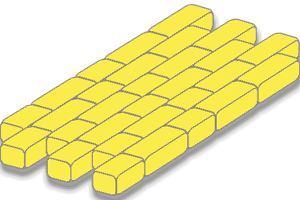


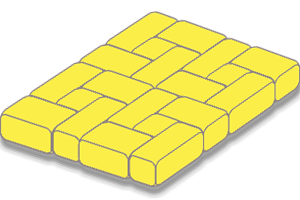
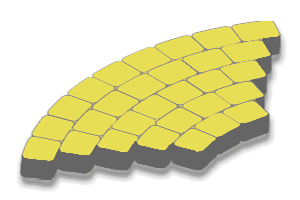
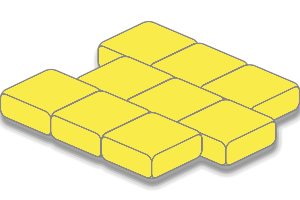

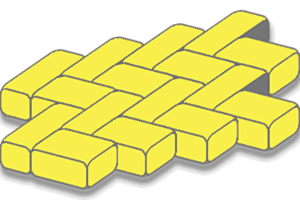



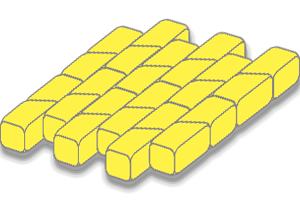
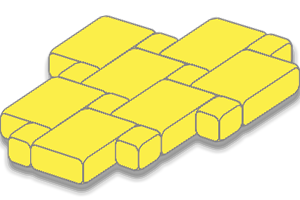






The price of our patios depends on several products which include:
To find more info on our prices, please call or reach us through our site. You can also contact us for a quote from our resin patio professionals.